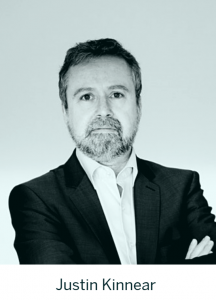Last December, the HPC team had the pleasure of meeting Harvard Business School Professor Amy Edmondson at a private event in the Shelbourne Hotel, Dublin.

It was the eve of HPC’s sponsorship of the L&DI Annual Conference at which Amy was the keynote speaker. She had just flown in from London after winning the Financial Times and Schroders Business Book of the Year Award for Right Kind of Wrong – based on her research into psychological safety and how to learn from failure and take better risks.
Her book won over the judges with its “systematic, richly illustrated exploration of how to build on “intelligent failure” and its critique of the craze for failure that often hypnotises entrepreneurs and innovators.”
Attendees of the Annual Conference were buzzing about her presence and delighted when they all received a copy of her book. Having read his copy, HPC’s Head of Research, Justin Kinnear dives into the key messages from the book and the high level takeaways that resonate throughout.
A fresh look at a new time
Professor Edmondson’s writings on “psychological safety” have been well known and understood since 1999. Books, articles, podcasts, and videos have all explained the critical importance of psychological safety, and have painted a clear picture of what happens to a work environment and a person when psychological safety is missing. This book, while revisiting and reinforcing some of Amy’s long-standing contentions, comes at an opportune time for us all.
What’s the key message?
Creating and maintaining psychological safety is still as critical as ever. Particularly if we want people to disclose important failures and mistakes and to learn from them so we can avoid them or adapt how we do things. That message hasn’t changed at all. What has changed is the environment of work and life. We know that psychological safety is key, but that is no guarantee that we will do what’s necessary in our workplaces to bring it into existence.

Why is this so difficult?
We find ourselves living in a time of perfection, where many feel the pressure to always say, do, and be the perfect thing. Coincidentally, we also find ourselves in a time of reduced attention span and ever-weakened ability to focus in detail. Finally, so many of us are exhausted by the relentless pace of life and the unstoppable flow of information. Some of us feel burned out. These three environmental factors – demand for perfection; weakened attention; and exhaustion from the pace of life – all threaten our ability to learn from failures and mistakes. Perfect people shouldn’t make mistakes, or so it goes. Learning takes time and careful attention, and we don’t have either.
Taking the first steps into a new leadership practice
Naming, understanding, and learning from failure requires us to recognise that some people are extremely attached to being right. Being right has become their way of feeling like a valued human being. But we can’t be right all the time, and no human should feel like their value remains only as long as they are right. Helping others to see the value in learning, to embrace what can be discovered from a disclosure that something went wrong or failed, is a critical reframing of what it means to be wrong. Being wrong could create opportunity for powerful learning, for new ways of thinking, and for releasing yourself from the burden that ties your value as a person to being right all the time.
One other key lesson Amy shared in her original work, and still shares as she addresses audiences today, is to show the way by role modelling your own fallibility. She tells the story of a successful airline pilot who begins each flight with new colleagues by disclosing that he has never flown a perfect flight. He tells them that today’s flight will likely be the same and that he is depending on his colleagues to work with him and tell him when something is not right or needs adjusted. This self-disclosure of fallibility helps to tear down the perceived walls of perfection that others can put up around us, or that we ourselves put up, without us knowing.
Overarching advice
Don’t aim to be perfect or right all the time. Slow down and spend some time exploring what happened and what it is teaching us. And recognise that rushing, try to do too much, or working while exhausted causes avoidable mistakes and failures.
Justin Kinnear – HPC

Justin is Head of Research at HPC and is at the forefront of creating blended content that is relevant, impactful and in line with the current needs of individuals and teams. Justin undertakes external research and analysis for leading L&D bodies and works in collaboration with our clients to evaluate the impact of HPC’s solutions within their organisations.
His passion for people development and his ability to inspire makes him a key member of HPC’s facilitation and coaching teams. His work with HPC focuses on the development of a high performance culture for our clients with a particular emphasis on accountability and feedback.
As well as his extensive research and facilitation experience, he was formerly Head of L&D at IBM and Britvic.
Connect with Justin on LinkedIn >>>
Connect with HPC on LinkedIn >>>